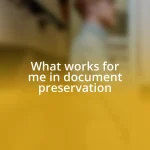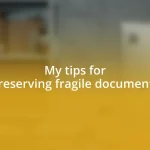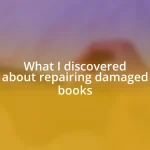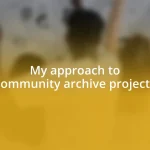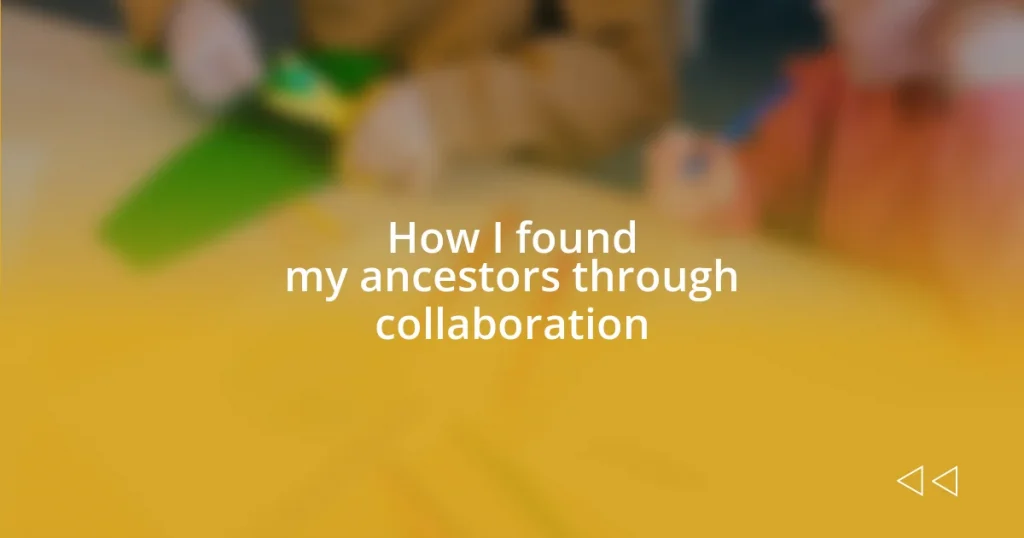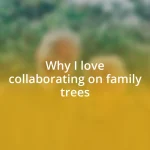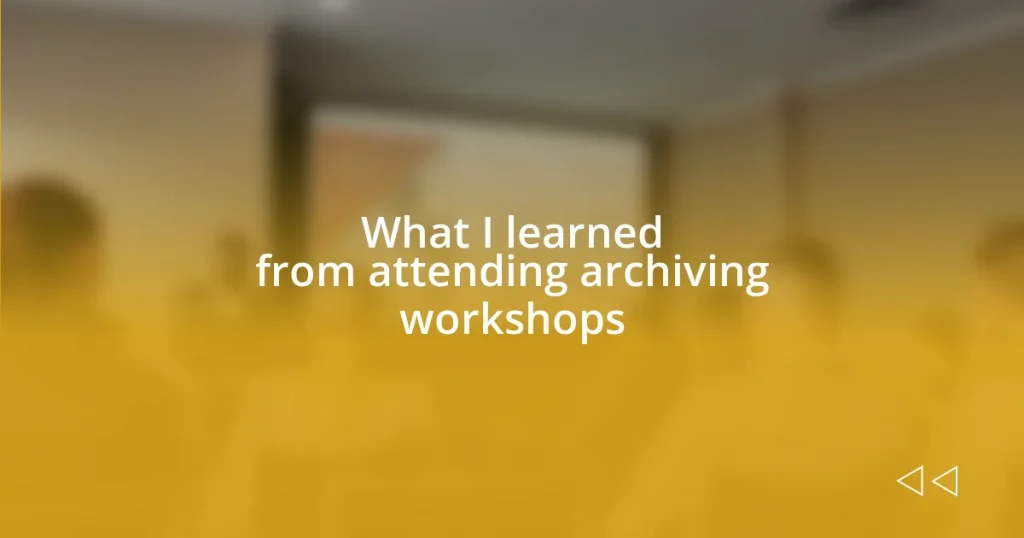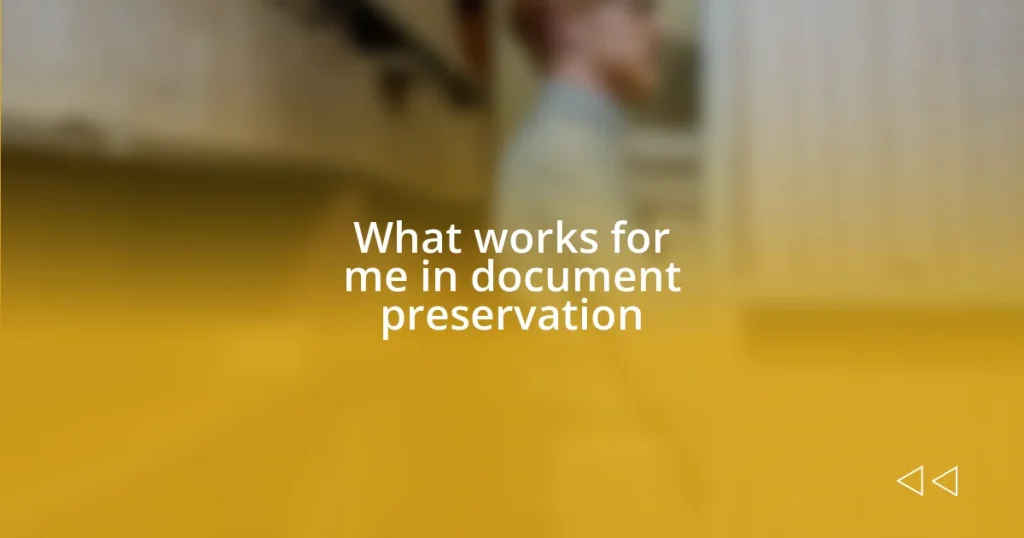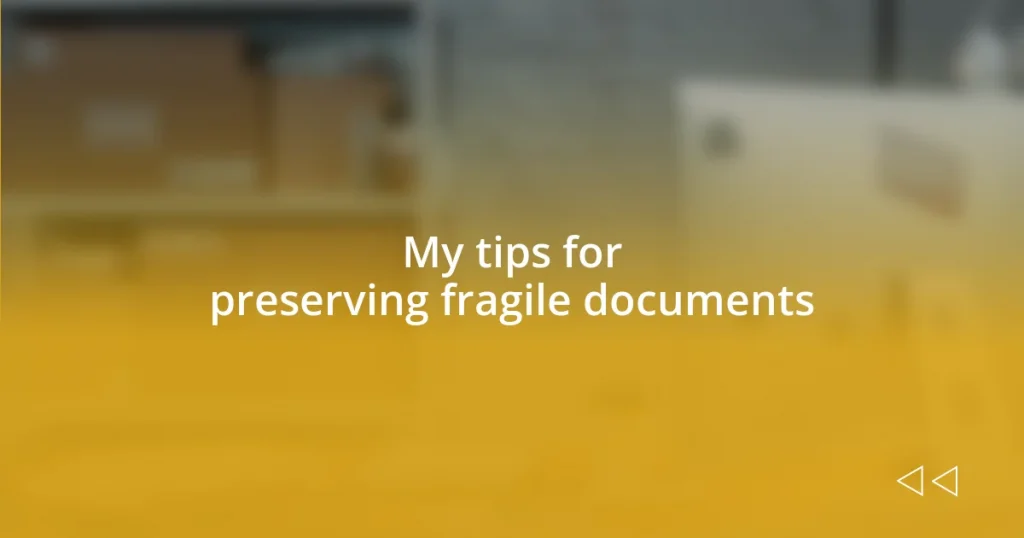Key takeaways:
- Collaboration enhances ancestral research by fostering emotional connections and shared discoveries, transforming solitary efforts into a vibrant community experience.
- Choosing the right online platforms is crucial, as they can offer valuable resources, support, and tools that streamline the genealogical research process.
- Navigating challenges in collaboration, such as communication issues and differing research styles, can lead to growth and new insights when approached with flexibility and open dialogue.
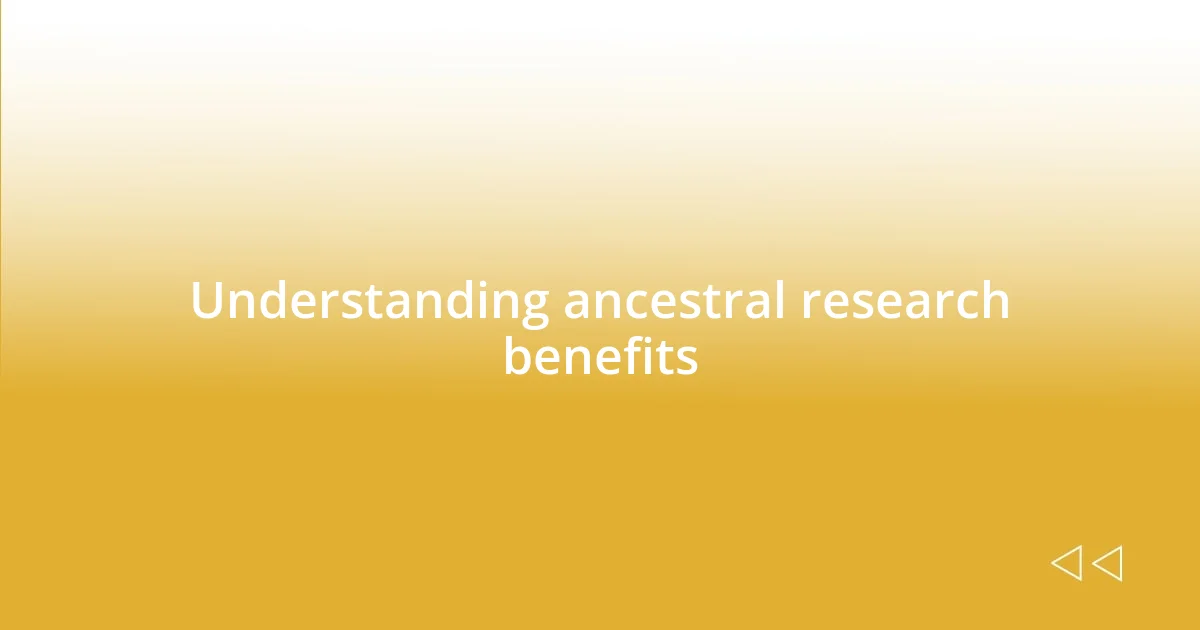
Understanding ancestral research benefits
Diving into ancestral research offers a profound sense of identity that many people don’t realize they’re missing. When I first uncovered my great-grandfather’s immigration story, it was like finding a missing piece of a puzzle I didn’t even know existed. Have you ever wondered how much of who you are is shaped by the choices of those who came before you?
Collaboration is a key factor in this journey, revealing layers of connection and knowledge that I couldn’t have accessed alone. I recall working with a distant cousin and piecing together family lore that had been forgotten over generations. The thrill of discovery is magnified when you share that experience with others; it creates an emotional bond that feels both unique and universal.
Moreover, the benefits extend beyond simply learning names and dates. Through collaboration, I have formed friendships with fellow researchers, each contributing their unique perspectives and resources. Isn’t it fascinating how these interactions can enrich our understanding of history and amplify our appreciation for our ancestors? This sense of community transforms solitary research into a shared adventure, making the past come alive in ways I never expected.

The role of collaborative genealogy
Collaborative genealogy serves as a powerful tool that transforms individual efforts into a shared journey of discovery. I remember one particular weekend spent at a genealogy workshop, where I found people as passionate as I was about unearthing their roots. We exchanged stories, and I learned about different research methodologies, which significantly broadened my own approach. It’s quite remarkable how one conversation can spark new directions for your family history quest.
- In my experience, collaboration opens doors to resources I never thought to explore, such as online databases and local historical societies.
- Working together allows us to combine skills, like one friend who specializes in DNA analysis helping me decode my results.
- I’ve also formed diverse connections; a historian in my group provided insights that changed how I viewed my family’s migration patterns.
- Together, we celebrate successes—big or small—creating not just a family tree, but a community of genealogy enthusiasts eager to share their findings and support each other.

Choosing the right online platforms
When selecting the right online platforms for collaborative ancestral research, I found it crucial to assess the unique features each offers. For instance, some platforms emphasize connecting with distant relatives, making it easier to share family trees and stories. After joining one such site, I discovered a cousin living states away who had extensive documentation of our shared ancestry. It was like stumbling upon a treasure chest of information I had no idea existed!
Another aspect to consider is the type of community each platform nurtures. I personally gravitate towards those that encourage active participation through forums and discussion boards. I remember posting a query about my great-grandmother’s hometown on a platform, and within days, several members had provided invaluable leads and resources. This collaborative environment truly enhances the research experience; it’s not just about data, but the relationships built along the way.
Technology also plays a significant role in this choice. Some platforms offer helpful tools, such as advanced search filters and DNA matching capabilities. I’ve often relied on these features to streamline my search, where a simple click can lead to relevant records or matches that could have taken me hours to find manually. The right platform can dramatically reshape your research journey.
| Platform Name | Key Features |
|---|---|
| Ancestry.com | Extensive database and family tree building |
| FamilySearch | Free access and a strong community for collaboration |
| MyHeritage | DNA testing and global connections |

Building a research network
Building a research network has been a transformative experience for me. One evening, I attended a local genealogy meetup, where I met individuals with varying levels of expertise. I didn’t just exchange names and emails; I felt a genuine connection with others who shared my passion. It was exhilarating to realize we could lean on each other for insights and support, creating a tapestry of skills and knowledge.
I remember collaborating with a fellow researcher who had a background in historical archives. Together, we mapped out a plan to visit a nearby town known for its rich records. When we uncovered a dusty old marriage certificate in an archive, I can still feel the rush of excitement—it was like unearthing a hidden gem! In networking, I discovered people are often willing to share their research tools and approaches, which broadens my horizons more than I could ever do alone.
Another pivotal moment occurred when I joined an online forum dedicated to ancestry research. Engaging with strangers who turned into virtual friends brought hidden treasures to light. When someone shared how they tackled a particularly dense thorny problem in their family tree, I couldn’t help but wonder, how many of us are missing out on such valuable lessons? This collaboration not only fuels our individual journeys but fosters a spirit of community that enriches everyone involved.

Documenting shared discoveries
Documenting shared discoveries has been one of the most rewarding aspects of my genealogical journey. I recall the thrill of creating a shared document with others who were researching the same lineage. We didn’t just compile names; we shared stories, photos, and even letters from our ancestors. Each contribution felt like a tiny piece of a larger puzzle that, when combined, illuminated our family history in ways I never anticipated.
I’ve also found immense value in collaborative online platforms where members publicly document their findings. One day, I stumbled upon an entry about a distant relative that included not just vital statistics but also personal anecdotes from their life. I remember feeling a mix of curiosity and excitement, wondering how this individual’s experiences might mirror or contrast with my own family’s narrative. What if this relative faced challenges that shaped my great-grandparents’ decisions? That thought sparked a deeper interest in exploring the interconnectedness of our histories.
The process of documenting these discoveries is not just about preserving facts; it’s about creating a shared legacy. I participated in an ongoing project where members contribute to a collective family tree. Each time someone adds a new piece, it feels like a celebration of our intertwined past. I often wonder, wouldn’t it be amazing to see the faces and hear the voices of those who walked before us? And through this documentation, I feel we’re not just unearthing history; we’re breathing life into the stories waiting to be told.

Navigating challenges in collaboration
Collaboration isn’t always a smooth ride; navigating personality differences can be challenging. I once teamed up with someone who had a vastly different approach to research. While I preferred thorough documentation and planned discussions, they leaned towards spontaneous brainstorming sessions. It took some trial and error before we found common ground, but the process taught me the importance of flexibility and compromise in any partnership.
Miscommunication can also rear its ugly head during collaborative efforts. I vividly remember a time I misunderstood my co-researcher’s notes, leading us down a rabbit hole of misinformation. The frustration was palpable, and I found myself questioning the value of our teamwork. Yet, that moment sparked a discussion about how we could improve our communication strategies, ultimately helping us establish clearer guidelines moving forward. I learned that addressing misunderstandings openly can turn potential setbacks into growth opportunities.
Lastly, access to resources can significantly impact collaboration. I found this particularly true when combining expertise with others from various backgrounds. For instance, while I had access to some historical documents, another collaborator had connections to specialized databases. When I realized that leveraging our unique resources could enhance our research, I felt a surge of excitement. Have you ever thought about how pooling different resources can magnify your efforts? This revelation reinforced the idea that collaboration isn’t just about sharing work but also about enriching each other’s research journey.

